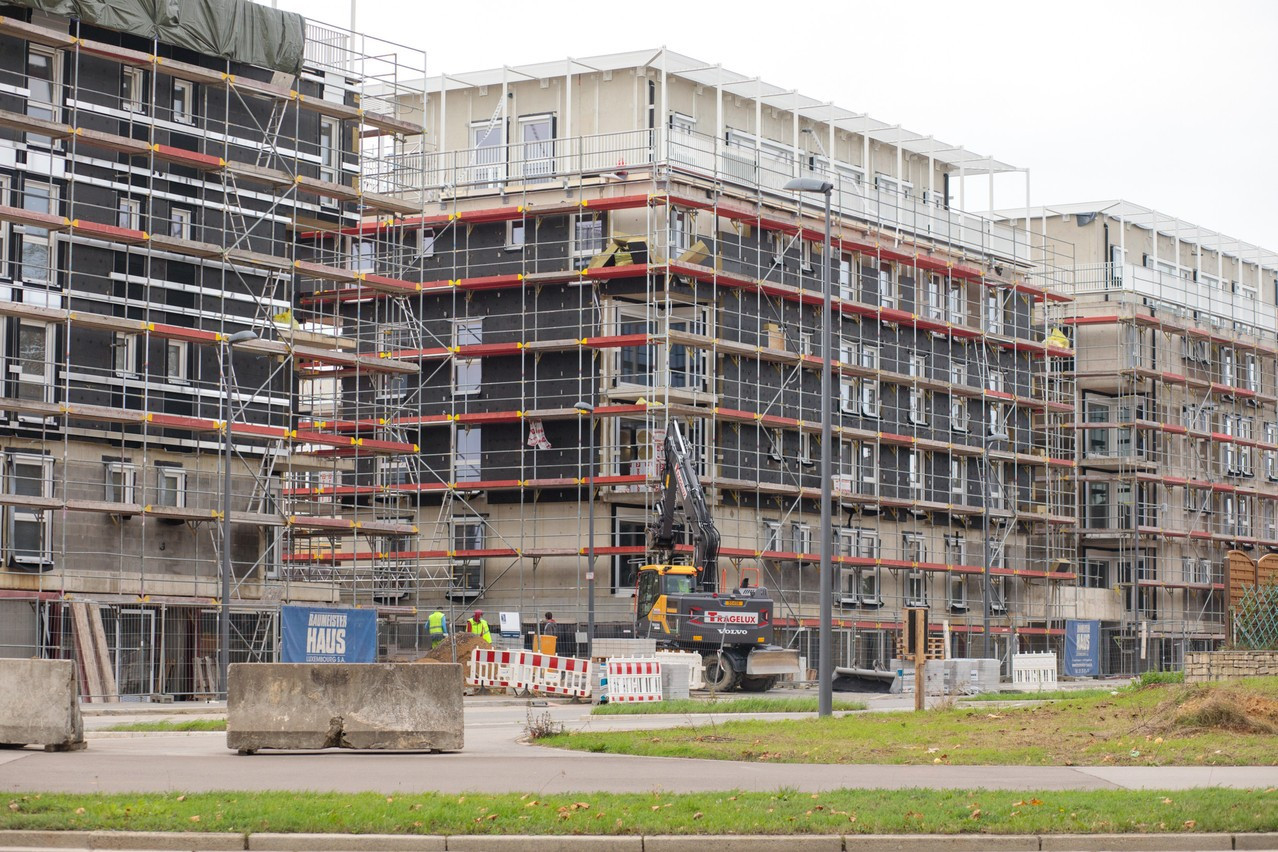“This targeted policy is a strong commitment to the right to housing, in order to guarantee a dignified, sustainable and quality ‘cohabitation’ for all,” said Kox while presenting the new draft laws 7937 and 7938.
More state-owned property and investment into affordable housing projects
“Luxembourg needs a housing stock that remains affordable in the long term. This is how we will ensure the right to housing and thus social cohesion!” Kox said in his presentation.
To do this, the financial participation system will be modernised, in terms of brick-and-mortar investments, the introduction of social landlords and affordable lease concepts and the establishment of a national affordable housing register (RENLA). In addition, properties built by public promoters should remain in their fold, and the government should be allowed to buy the property at any given time. “These properties should never again end up in the private market,” explained Kox.
The RENLA, which would keep a waiting list for affordable housing and be a tool to see what needs exist in the grand duchy, of all parties in parliament. One deputy worried such a plan would disengage communes from the social housing cause, while another said that social housing attributions should take into consideration an applicant’s physical location, rather than the urgency of their situation.
Read also
A reform of individual housing aid
In addition to reviewing the properties and their organisation, one of the draft laws also reviews the eligibility criteria for housing aid, while simplifying and digitalising the administrative system to access support and increasing the sum of aid.
Affordable rentals would now be accessible to 50% of households, affordable housing for sale for 60%, and moderate housing for sale for 70% of households. In addition, a “capital grant pot” of €35,000 is to be introduced, giving the “beneficiary (a maximum amount) to receive in the form of one or more home-ownership grants, savings grants and/or improvement grants.” Some aids like those for people living with a disability, are not included in the pot.
While future buyers of a property in the private market are eligible for the individual aid, this is not the case for those buying affordable property, as they would indirectly benefit from the brick-and-mortar aids.
“Together with the Housing Pact 2.0, the creation of the Special Housing Fund, the adoption of laws for the financing of nationwide projects (Elmen, Wunne mat der Wooltz, NeiSchmelz, ...), the public affordable housing offensive is thus completed,” Kox concluded his presentation, hoping to reform laws regarding housing.
Individual aid will by 2023 reach €62m (€35m in 2020) and brick-and-mortar aid will amount to €239m, a stark increase since 2020 (€96m).
Semiray Ahmedova, the president of the housing commission, was elected rapporteur of the draft laws.
Currently, over 21,000 households in Luxembourg pay half of their wages towards rent, and for more than a third of households,
